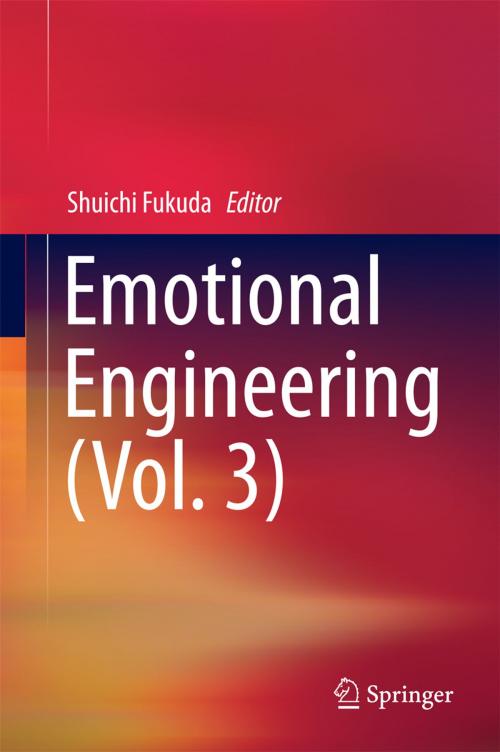| Author: | ISBN: | 9783319115559 | |
| Publisher: | Springer International Publishing | Publication: | November 19, 2014 |
| Imprint: | Springer | Language: | English |
| Author: | |
| ISBN: | 9783319115559 |
| Publisher: | Springer International Publishing |
| Publication: | November 19, 2014 |
| Imprint: | Springer |
| Language: | English |
This book examines how theories of human emotion can be applied to engineering in order to improve product design and value. ‘Emotional Engineering Vol. 3’ establishes the idea that customer satisfaction can be maximised by using knowledge and experience in a more flexible manner to respond to a fast-changing world. This integration of emotion and knowledge introduces the reader to the concept of Wisdom Engineering. It also highlights the importance of emotion in creating value for the customer, and how this can be achieved by acknowledging a customer’s creativity and by facilitating the customization of products for their needs and preferences.
As has been identified by neuroscientists, emotion and reason are strongly interconnected, and the increasing complexities and diversification found in the products we use demonstrates the growing significance of emotion when designing these products. Society is comprised of humans and artificial products; their integration is important when considering product design, and improving quality-of-life for the customer. ‘Emotional Engineering Vol. 3’ builds on Dr Fukuda’s previous books, ‘Emotional Engineering’ and ‘Emotional Engineering Vol. 2’, and is intended for researchers and professionals in engineering, psychology, management of technology, economics.
This book examines how theories of human emotion can be applied to engineering in order to improve product design and value. ‘Emotional Engineering Vol. 3’ establishes the idea that customer satisfaction can be maximised by using knowledge and experience in a more flexible manner to respond to a fast-changing world. This integration of emotion and knowledge introduces the reader to the concept of Wisdom Engineering. It also highlights the importance of emotion in creating value for the customer, and how this can be achieved by acknowledging a customer’s creativity and by facilitating the customization of products for their needs and preferences.
As has been identified by neuroscientists, emotion and reason are strongly interconnected, and the increasing complexities and diversification found in the products we use demonstrates the growing significance of emotion when designing these products. Society is comprised of humans and artificial products; their integration is important when considering product design, and improving quality-of-life for the customer. ‘Emotional Engineering Vol. 3’ builds on Dr Fukuda’s previous books, ‘Emotional Engineering’ and ‘Emotional Engineering Vol. 2’, and is intended for researchers and professionals in engineering, psychology, management of technology, economics.















